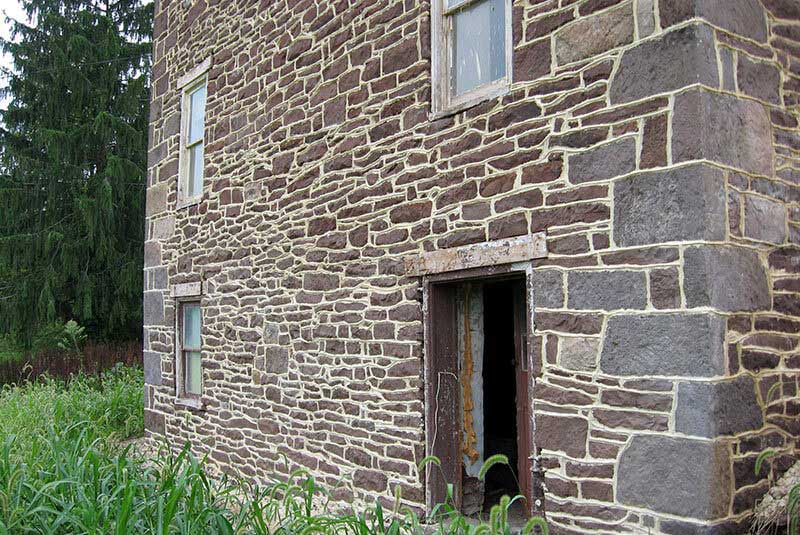Stone has been a foundational material in architecture and design for centuries, celebrated for the beauty and sturdiness. However, natural natural stone surfaces could become broken with time as a result of wear and tear, ecological factors, and improper maintenance. Understanding the various stone forms as well as how to take care of them is crucial for anyone looking to preserve typically the elegance and honesty of their home. Stone restoration is a skilled practice that not only restores splendor but also enhances the particular longevity of stone surfaces.
In this comprehensive guideline, we will explore everything you require to know concerning stone restoration. Coming from the benefits associated with employing professionals to the dos and don'ts regarding DIY restoration jobs, you'll gain valuable insights into maintaining your natural natural stone surfaces. If you are dealing with marble counters, granite flooring, or limestone patios, you will discuss effective techniques for restoration and upkeep, assisting you to avoid common mistakes. Let's dig deeper into the world of stone to ensure the spaces remain classic and stunning.
Overview associated with Stone Restoration Techniques
Stone restoration is actually a meticulous practice targeted at preserving in addition to enhancing the advantage of all-natural stone surfaces. This particular involves various methods tailored to the particular form of stone getting restored, whether that be marble, granite, limestone, or travertine. Each material gifts unique challenges and an understanding from the properties to guarantee effective restoration. The particular key techniques include cleaning, polishing, securing, and repairing destruction, focusing on equally aesthetic and strength integrity.
One of the most fundamental facets of rock restoration is thorough cleaning. This task generally involves using particular cleaning agents that can effectively remove soil, stains, and grime without having damaging the rock. For softer gemstones like marble plus limestone, gentle cleaning methods are crucial, although harder stones like granite may stand up to more vigorous cleansing techniques. Following hop over to this web-site , polishing is applied to restore the stone's original sparkle, which can diminish after some time as a result of wear plus tear.
Wrapping up is another important technique in stone restoration , providing a new protective barrier against stains and wetness. Choosing the right sealant is vital for various rock types, like a need regular reapplication while others may provide long-lasting protection. In addition, repairing damage for example chips, cracks, or scratches ensures that will the stone areas maintain their strength integrity. By using these techniques, rock restoration not simply revitalizes the appearance associated with the material but in addition extends its life expectancy.
Benefits of Professional vs. DIY Repair
Choosing between professional stone refurbishment services along with a DO IT YOURSELF approach involves considering the benefits of each. Professional restorers bring expertise and experience in the relationship, ensuring that the refurbishment process is done correctly and efficiently. They may be equipped with particular tools and approaches that could tackle stubborn stains, scratches, and even etching, which may possibly be difficult for any DIYer to deal with. In addition, professionals can offer tailored solutions using the certain type of rock as well as condition, which regularly results in better outcomes and longevity regarding the restoration.
On the other hand, DIY repair can be interesting for those searching to spend less or even enjoy the fulfillment of completing a project themselves. However, attempting to comes with dangers, for instance damaging typically the stone due in order to improper techniques or perhaps using the completely wrong cleaning products. For instance, harsh chemicals can easily harm natural stone surfaces, resulting in more deterioration. While DO IT YOURSELF methods may provide immediate visual development, they might certainly not provide the exact same standard of protection in addition to care that professional services ensure, probably bringing about more frequent maintenance needs.
Ultimately, the choice between professional and DIY restoration depends on the special project and personal circumstances. For intricate or valuable rock surfaces, investing inside professional restoration can easily be worthwhile, since it safeguards the purchase and ensures quality results. Conversely, with regard to minor touch-ups or perhaps less expensive areas, a well-informed DO IT YOURSELF approach may be all you need. Understanding these rewards will help homeowners make an informed choice in relation to restoring their natural stone surfaces.
Maintenance Tips with regard to Different Stone Varieties
Proper upkeep is crucial intended for preserving the elegance and longevity associated with various stone sorts. For marble surfaces, it's necessary to work with a pH-neutral cleaner to prevent etching and dulling the finish. On a regular basis applying a high quality marble sealer might force away stains plus moisture. It's likewise a good idea to avoid acidic substances, such as vinegar or citrus, which often can harm marble's surface.

If it comes to granite, keeping this clean and correctly sealed is essential. Work with a mild food water and soap for everyday cleaning, and make sure to reseal your current countertops every 6 to twelve weeks, depending on utilization. In case there is chips or perhaps scratches, it’s frequently far better to consult the professional for fix to avoid further damage.
Limestone and travertine need special attention because of the porous nature. They must be cleaned with a soft cloth plus a stone-safe cleanser, and sealing should be done regularly to stop spots and water damage. Intended for outdoor surfaces, consider using a gentle stress wash to take out debris while being cautious not to harm the stone. Typical upkeep not merely improves appearance but in addition stretches the life of such organic stones.
